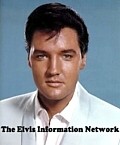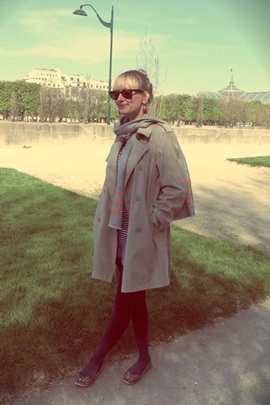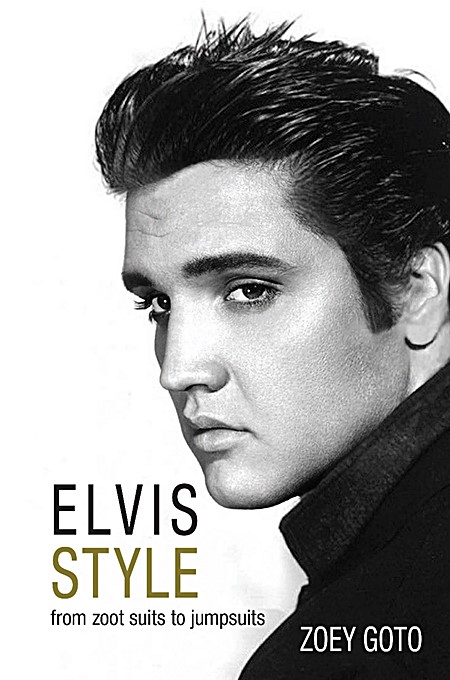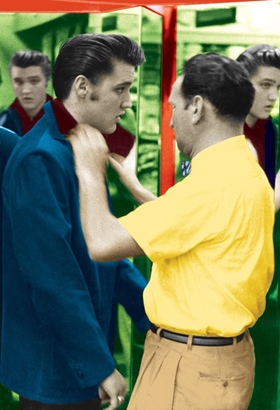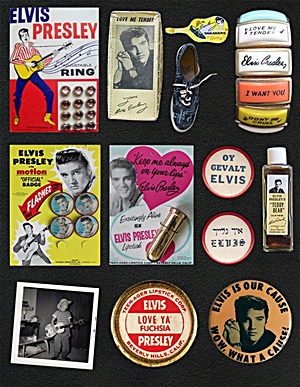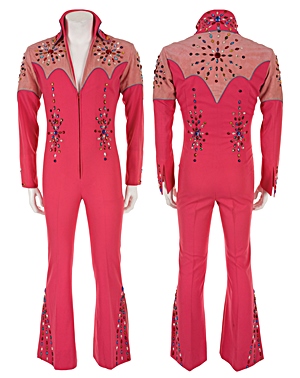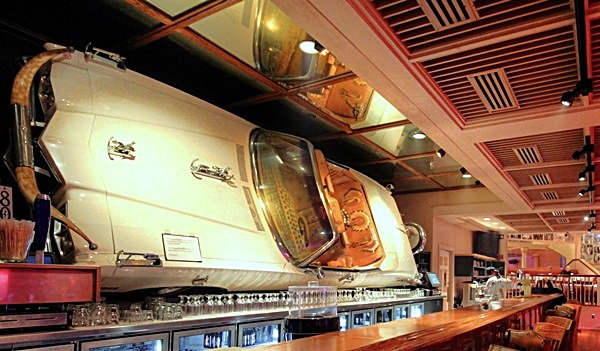 |
 |

EIN: The nature of writing about design and fashion suggests you would need to travel a lot to attend fashion shows, conventions and the like. Is this the case and if yes, what are some of your favourite places to have visited? ZG: My work has taken me to Italy, France and America a number of times, but actually the bulk of my writing is about creative things happening in London, so it tends to be reasonably local. A while back, I did an article for GQ on the Italian tailoring house of Kiton, so got to see behind the scenes at their workshop in Naples where they make the world’s most expensive suits. Naples has a great atmosphere and a real appreciation of the good life – food, family and sunshine. I also had a really memorable work trip to Scottsdale, Arizona where I got to visit the architect Frank Lloyd Wright’s winter home, Taliesin West. I’d never seen anything like it – it’s a very organic building that seems to have risen out of the surrounding landscape. EIN: You interviewed Benedict Cumberbatch. What was the genesis for your interview and how was the experience talking to one of the world’s leading film and TV stars? ZG: That was a really enjoyable assignment actually. Last year the BBC invited me onto the set of the hit show Sherlock, to see them filming the special Christmas edition. It was a small group of journalists, some of who had travelled America, Australia and South Africa to be there. We all had to sign confidentiality agreements before being taken onto the set, which was a vast, former bottle warehouse on the outskirts of Bristol. The BBC couldn’t tell us any details of the plot, which was quite strange as we were shown a giant waterfall feature and a Victorian era version of Sherlock’s flat, plus Benedict was in full period costume, but no one could explain what these things meant – it all became clear when I watched the full episode in December though! On the day, I also interviewed the other cast members and producers, but Benedict was the main focus of my magazine article. I was impressed by how friendly and eloquent he was. Benedict must spend many hours sitting through interviews, plus he was a sleep-deprived new father when we met, but he reacted to each question as if it was really engaging. He’s also quite socially minded and became quite passionate when giving his views on the disparaging way that autism is often spoken about. I came away from the meeting thinking he was a really decent, down to earth guy.
EIN: Zoey, the idea for Elvis Style. How did that come about? ZG: I first became interested in Presley around 15 years ago, when I was flicking though a magazine and came across a photo of Elvis - who was, and still is, the most visually stunning person I had ever seen. From that point onwards I was hooked. I speedily booked a ticket to Memphis to visit Elvis' hometown and shortly after wrote an academic paper on Graceland's interiors, which later gave rise to the idea of my Elvis Style: From Zoot Suits to Jumpsuits book. I was really surprised to see how relatively little had been written about Elvis from a fashion & design perspective, as he has had such a huge cultural influence. I think there are very few icons that have had, and continue to have, such a direct influence on our aesthetic world. When I'm walking down the street in London, I am always clocking Elvis' influence on the way men style themselves - from quiffs and rockabilly revival, to the way we use cultural appropriation in our dress. There have been many great dressers throughout history, but very few that still continue to have the relevance that Elvis maintains. EIN: From its inception, how long did it take to research and publish? ZG: I researched the book for over a decade but the journey from actually sitting down to write a formal book proposal, to holding Elvis Style in my hands took around two and a half years. EIN: There have been several other books published about Elvis’ fashion (dress) style. Your book goes a lot further than just this aspect of Elvis’ style. Why was it important to you to cover the broader range of Elvis’ style impact, from fashion to personal grooming, mobiles, food and interiors? ZG: Elvis had style across the board. I personally felt that to solely focus on the clothing would leave out a large part of the story. It wasn’t as if Elvis wore these expressive, wild outfits and then went home to his minimalist, white cube of a house! The jumpsuits, pimped-up cars, and thematic interiors all mirror each other and tell us much about the wonderfully creative, playful and at times extreme person that Elvis was. EIN: How do we define style? ZG: In its simplest term, style is the way we express ourselves through our appearance and the things we surround ourselves with. To be interested in style is often considered trivial, but it is an important form of communication that signals to the world who we are, or perhaps who we aspire to be. The terms style and fashion are often interchangeable, but I feel there is a distinction between fashion - which is more trend focussed, and style - which has a much more personal voice. If we take this back to Elvis, he was not always in fashion but I would argue that he always was very articulate in communicating who he was through his style. EIN: Zoey, a number of EIN readers were intrigued by the title to the book: Elvis Style: from zoot suits to jumpsuits. There is some debate about whether or not Elvis’ 1950s suits can be categorised as zoot suits. What is your response to this? ZG: In his youth Elvis certainly wore zoot pants – a style of trouser with that is really baggy, with a high waist and a tight cuff at the ankle. There a great photo of a young Elvis wearing some high-shine zoot pants and he’s just slipping an elongated jacket off his shoulders, which looks very much like a zoot jacket. I wanted to include the zoot suit in the title as I make a point about Elvis wearing clothing that was typically worn by ethic minorities, and how for white Southerners like Elvis, this was subtlety offering up a challenge to the authorities at that time. I think this is an important point as Elvis was really pushing the racial and sexual boundaries of fifties America – through his music, dance moves, the clothing he wore and even the way he styled his hair.
EIN: In preparing Elvis Style you interviewed many leading designers, stylists and tailors. Who were some of your favorite people to speak with? ZG: Interviewing the ‘King of Kustomizers’ George Barris was a real privilege. He’d created iconic autos such as the Batmobile, the Knight Rider car, and of course a number of cars for Elvis – including the famous gold plated Cadillac. We talked at length about the various cars George had worked on for Elvis and he also included a few personal stories - such as the time Priscilla had lodged at the Barris home while Elvis was filming in LA. Every evening, Elvis dropped the young Priscilla at the house and would rush to open her door, and then walk her right up to the front door, only leaving when he knew she was safely in the house. ‘He was always such a gentleman’ George remembered. Sadly, George died the same year that I interviewed him, so I was really grateful that I’d had the chance to speak personally with him. Flying out to Memphis to meet Hal Lansky was also a great experience! Hanging out at the Lansky Brothers store was a dream come true as it combined my two favourite things – Elvis and fashion. EIN: Zoey, in the book you talk about Elvis understanding the impact that certain designs or colors have. Did you form a view on whether that was largely intuitive on his part or learnt from observation? ZG: I think Elvis was a master of both observation and intuition. He soaked up the culture that surrounded him – from the sounds and style of country, gospel and blues musicians. But crucially, rather than just becoming an imitator, Elvis took these different elements and put them together to create something new – both in his music and his style. From speaking to many people about Elvis, I was surprised that there is a misconception that Elvis’ image was crafted by a team of advisers, in the way our modern-day boy bands are. Yet Elvis was really calling the shots when it came to his image, using bricolage to bring together these various cultural references, colour and prints to create a new style that was distinctively all his. EIN: What were some of the most important things you learnt about Elvis’ style when researching the book? ZG: One of the things that really struck me was how much Elvis’ Southern culture influenced his life - even when he was uprooted in Germany or Hollywood. In every chapter that I write about – fashion, homes, hair, cars and food, Elvis’ Southern roots had played some sort of key role and this was really fascinating to follow. From my interviews I also found that Elvis is still held in really high regard in the design world – fashion and costume designers, university lecturers, celebrity stylists, branding experts and museum curators – they were all really responsive and interested in Elvis’ style. It was exciting to garner that enthusiasm and find a new way of looking at Elvis’ life and legacy. I thought why hasn’t someone done this before – they were just waiting to be asked!
Visit: Author of Elvis Style: From Zoot Suits to Jumpsuits:
EIN: Zoey, Elvis’ weight gain in the early to mid-1970s and the ostentatiousness of his jumpsuits. You note a correlation between these in Elvis Style. Could you share it with our readers? ZG: I think in the final few years, the clothing started to take centre stage when Elvis’ performances became erratic. Elvis’ costumes were like a wonderful, jewel encrusted safety net that could keep the audience entertained, regardless of the stage show. It’s a relationship that Priscilla herself observes in her book Elvis & Me. But on a personal level, I really love these more elaborate, later jumpsuits as they are at the extreme end of fashion - which is always an interesting area.
EIN: You also discuss Elvis as a style icon not only during his lifetime but also since his death. What is it about Elvis’ style that makes it relevant nearly 40 years after his death? ZG: Of all the various styles that Elvis tried out, it’s his 1950s image has had the most impact on contemporary culture – it’s the style most imitated by designers, street style and modern-day pop stars. The menswear designer Joe Casely-Hayford summed it up nicely in Elvis Style when he said, ‘Even today, a distilled version of his look has filtered down into the wardrobes of many self-respecting teenage rebels. The “Elvis Style” remains a potent and relevant signifier for certain subcultural groups’. Elvis gave us a prototype of how youthful rebellion should look and it still rings true. EIN: Following on from the preceding question, younger fans will be intrigued to read in your book about Elvis’ impact on contemporary street style. Please tell us about this. ZG: There are many examples throughout Elvis Style of the ways that Elvis has influenced street style – from the Japanese rockabillies that I witnessed while in Tokyo, with their towering quiffs, to the way that replicas of Elvis’ clothing finds its way into the high street and designer stores each season. EIN: What is your view on the style imbued by the disparate interiors at Graceland? ZG: Graceland is a really significant house as it tells us so much not only about Elvis, but also about the culture that spawned him. For example, it is now fairly standard for celebrities to invite the media into their homes to photograph their private lives, but when Elvis did the Mid-South Magazine shoot in the mid-60s, it could be seen as starting a cultural trend. I also love the themed rooms at Graceland, so naturally the Jungle Room is my all time favourite! Graceland and Elvis should feature more on graduate design courses – it’s a real oversight that young fashion students aren’t studying Elvis’ contribution to style and that interior design courses don’t come and tour Graceland. EIN: Will Elvis Style be released in electronic format? ZG: My publisher, Redshank Books is currently working on this and an eBook should be available in the next month or so. EIN: Do you have plans for more books? ZG: I would love to develop a whole series of stylebooks, looking at various style icons and the way they’ve influenced contemporary fashion and design. I guess my main issue at the moment is that I’ve set the bar so high with Elvis – in terms of men’s style I really do feel he is the pinnacle – so how best to follow this up? I have a few ideas that I’m currently working on, so watch this space! EIN: Zoey, is there anything else you would like to say to EIN readers? ZG: Thank you to everyone who has brought a copy of Elvis Style – the first batch of books has already sold out, so I’m delighted that it’s generated such interest! I also wanted to recommend staying overnight at Elvis’ Lauderdale Courts apartment (the complex is now called Uptown Square), as any Elvis fan would find this an amazing experience. They have a Facebook page with a phone number that you can call to book and it costs a couple of hundred dollars per night. Waking up in Elvis’ teenage bedroom was one of the highlights of writing Elvis Style! EIN: Zoey, thank you very much for taking time out of your busy schedule to talk to us about Elvis’ style and your life as a fashion and design journalist. I know our readers will find your interview opens up a whole new dimension to the Elvis story.
Visit: Author of Elvis Style: From Zoot Suits to Jumpsuits:
|
|
